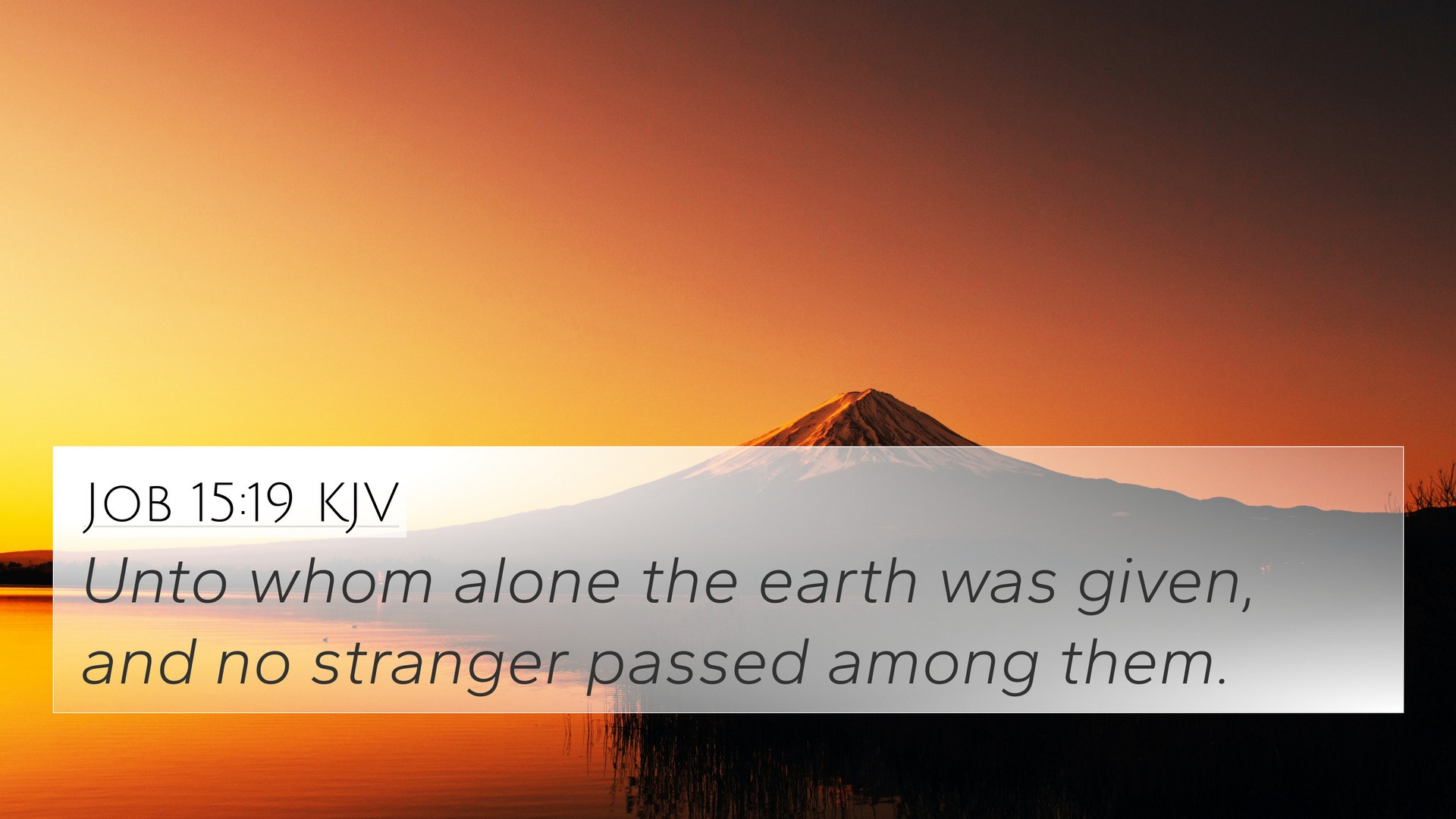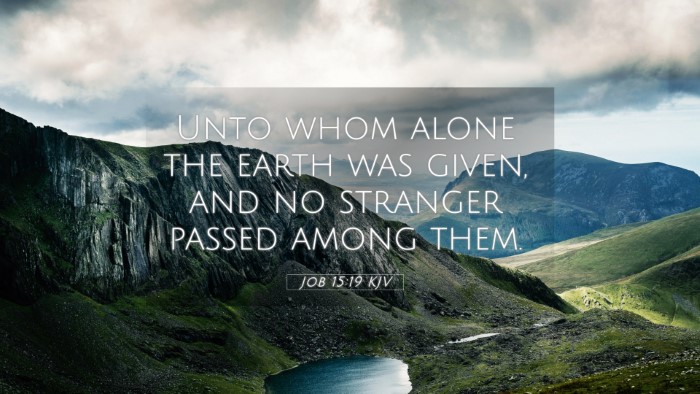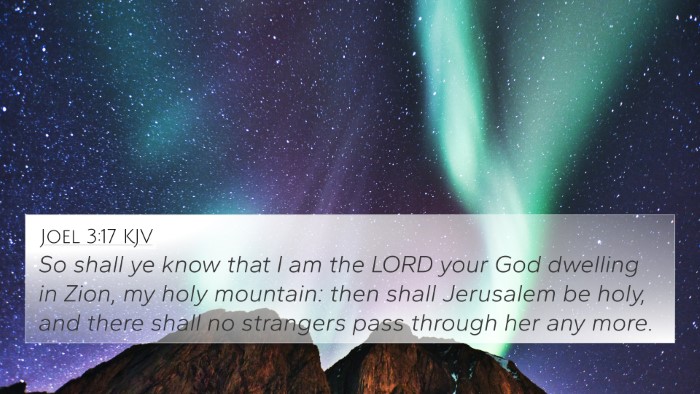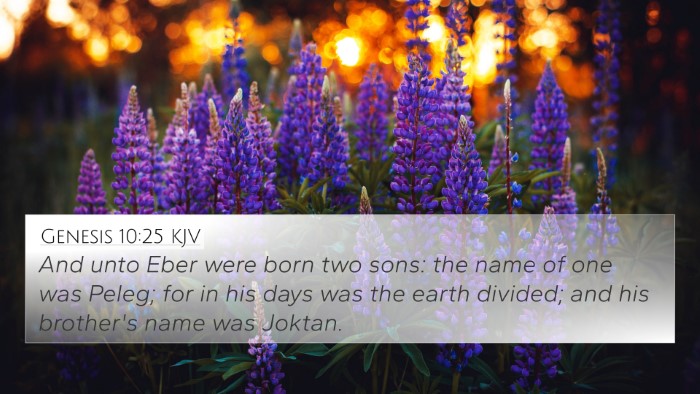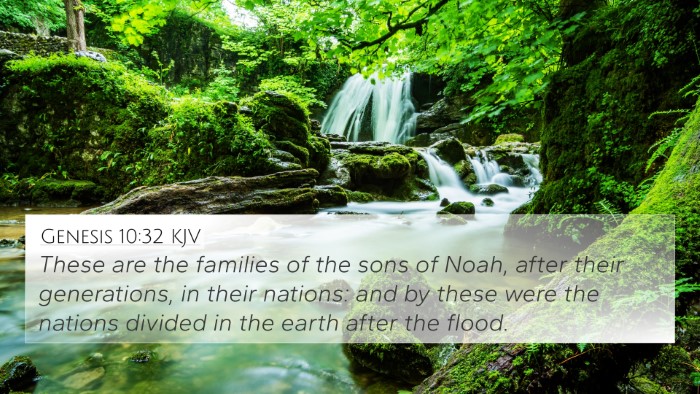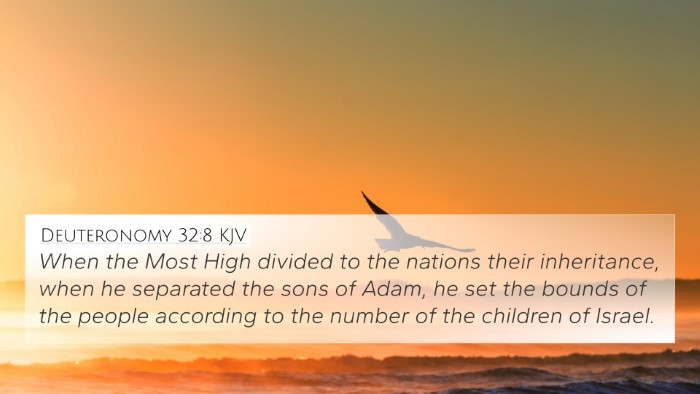Understanding Job 15:19
Job 15:19 states: "Unto whom alone the earth was given, and no stranger passed among them."
This verse reflects one of the key themes in the Book of Job — a discussion regarding the wisdom and ways of God contrasted against human understanding. Through an integration of insights from various public domain commentaries, we explore the significant meanings embedded within this verse.
Contextual Background
In the context of the Book of Job, this verse is presented during a dialogue between Job and his friend Eliphaz. Eliphaz accuses Job of unwarranted self-justification and suggests that the prosperous and wise are favored by God. Job's suffering is perceived by his companions as a punishment for sin.
Insights from Matthew Henry
According to Matthew Henry, Eliphaz implies that God bestowed the earth's blessings upon the faithful. The "stranger" refers to those outside of God's covenant community, indicating that the prosperity of the righteous is a divine promise. It suggests an exclusivity to the blessings that God gives, emphasizing His justice.
Insights from Albert Barnes
Albert Barnes elaborates that the declaration of the earth being given only to certain individuals hints at the understanding of God’s governance of the world. The verse references traditional views that imply spiritual prosperity belongs solely to the just. This serves as a backdrop for evaluating divine recompense and moral uprightness.
Insights from Adam Clarke
Adam Clarke interprets the verse through a lens of covenant relationship, signifying that the blessings are maintained for those in a faithful communion with God. The phrasing indicates a distinction between the righteous and the rest, urging readers to reflect on their spiritual standing.
Thematic Connections to Other Scriptures
Job 15:19 connects deeply with various themes found throughout the Scriptures. Below are several Bible cross-references that highlight its significance:
- Psalms 37:29: "The righteous shall inherit the land, and dwell therein forever."
- Proverbs 10:30: "The righteous shall never be removed: but the wicked shall not inhabit the earth."
- Isaiah 57:13: "When thou criest, let thy companies deliver thee; but the wind shall carry them all away; vanity shall take them: but he that putteth his trust in me shall possess the land, and shall inherit my holy mountain."
- Matthew 5:5: "Blessed are the meek: for they shall inherit the earth."
- Romans 8:17: "And if children, then heirs; heirs of God, and joint-heirs with Christ; if so be that we suffer with him, that we may be also glorified together."
- 1 Peter 1:4: "To an inheritance incorruptible, and undefiled, and that fadeth not away, reserved in heaven for you."
- Revelation 21:7: "He that overcometh shall inherit all things; and I will be his God, and he shall be my son."
The Importance of Cross-Referencing Biblical Texts
Understanding Job 15:19 requires a comprehensive approach that includes identifying connections between various Bible verses. This can enrich one’s study experience and deepen comprehension of thematic Bible verse connections and the overarching narrative of Scripture.
Tools for Bible Cross-Referencing such as a Bible concordance or a Bible cross-reference guide can assist readers in finding similar verses and thematic parallels, which further illuminate the meanings embedded within each text.
Conclusion
Ultimately, Job 15:19 serves as a reminder of the covenant relationship believers are invited into with God and underscores the exclusivity of His blessings on the righteous. This verse is part of a larger conversation that reveals the tension between divine justice and human suffering, encouraging us to seek deeper understanding through comparative Bible verse analysis and thematic studies.
Further Study Suggestions
- Explore how Job's friends’ perspectives reflect common theological beliefs of that era.
- Compare Job 15 with passages from the New Testament regarding righteousness.
- Utilize digital tools for cross-referencing while studying Job.
- Consider how this verse aligns with prophecy and the narrative of redemption throughout Scripture.
